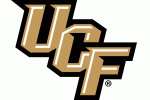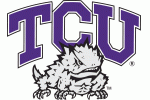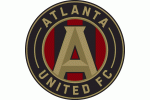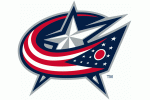AktionJackson
Active member
- Joined:
- May 13, 2013
- Posts:
- 194
- Liked Posts:
- 343
- Location:
- Germany
https://profootballtalk.nbcsports.com/2018/09/03/khalil-mack-trade-super-bowl-prediction-peter-king/
The Raiders made a huge mistake in trading Khalil Mack, a state-of-the-art player at one of the game’s most important positions. If you’re not going to compete to keep your best players—and clearly, the Raiders did not exhaust possibilities to get Mack signed—why oh why do you draft and develop great players? Mark my words: The Raiders will live to regret this deal, regardless how rich the return.
I was talking to Saints coach Sean Payton over the weekend, and the Khalil Mack trade to Chicago came up. “The last time we played Oakland [Week 1 2016], we put in a special protection for him,” Payton said. If Mack lined up outside the right tackle to rush, the Saints’ tight end would line up on the right side and chip him as he rushed. If Mack lined up opposite the left tackle, the tight end would shift left. The Saints called it “Mack Protection” in the gameplan that week.
You do that kind of thing for Khalil Mack, or Aaron Donald, or maybe Von Miller. They’re that good, and they can wreck games if foes try to block them consistently with one man.
But between late February and late August, I’m told, the Raiders didn’t aggressively try to resolve the Mack contract issue—not as aggressively as the Rams with Aaron Donald or the Packers with Aaron Rodgers. Mack was on the fifth-year option of his rookie deal but didn’t report to camp, and the Raiders seemed willing to hope Mack would report this week so he could begin collecting increments of his $13.846-million one-year salary. But Mack was steadfast about staying away, feeling Oakland didn’t value his game sufficiently. He wasn’t coming. So last Friday the Raiders zoned in on trying to get two first-round draft picks in trade for him (the Jets, Niners and Browns pushed, but not hard enough) and Chicago put the two ones on the table. So the deal got done, with an asterisk: Oakland had to send a future second-round pick to Chicago, cheapening the return for Mack. By the end of the day Saturday, Mack had eclipsed Aaron Donald as football’s richest defender.
The most important part of this story is being mostly ignored. It’s best framed by asking this question:
If I told you that you could draft and develop one of the three best defensive players in football (and maybe the best), and then sign him to a contract that would take him all the way through his prime for an average of 10.7 percent of your salary cap annually, would you do it?
I bet the vast majority of the teams in the league would be happy to do so. If they knew anything about football they would.
But that’s the crux of this situation. Let me explain. Mack, over the next seven years, is scheduled to make $154.85 million on his new Bears contract. The salary cap this year is $177.2 million. Over the last five years, the cap has risen about $10 million a year. So let’s project that it continues to rise $10 million a year through the last year of the Mack deal, in 2024. The cap, then, would be $237.2 million in the last year of Mack’s deal.
Average salary cap per team over the next seven years, by my estimate: $207.2 million.
Mack’s average compensation over the next seven years: $22.12 million.
Average cap spending devoted to Mack annually: 10.67 percent.
When Jon Gruden spoke Sunday night in Oakland, he implied that the odds are against a team winning when it has two huge-salaried players. Those two players in Oakland were Derek Carr and Mack. Last year, Carr signed an extension that, adding in his scheduled 2017 salary, would pay him $126.7 million over six years, according to Over The Cap. Long-term, then, the combined Carr/Mack cap number, on average, would be $43 million, or 20.87 percent of the annual cap. That means two star players would make 21 percent of the Raiders’ cap.
I don’t think spending 21 percent of the cap on two big stars is excessive. Especially when the alternative is irrelevance.
That’s the most important thing here. Let’s dig into four tributaries:
1. There are times to make first-round picks untouchable. This was not one of them. There’s this impression out there that first-round picks are the Holy Grail of team development, absolutely irreplaceable pieces of a team’s future. Remember the Patriots’ furious comeback to beat Atlanta in the Super Bowl two years ago? On their game-tying drive that night, of the five offensive linemen and six skill-players who touched the ball, one (left tackle Nate Solder) was drafted in the top 75 of a draft.
Excepting Mack and the last two first-round Raider picks (who cannot be judged yet), look at the last 10 Raider first-round picks: Robert Gallery, Fabian Washington, Michael Huff, Jamarcus Russell, Darren McFadden, Darrius Heyward-Bey, Rolando McClain, D.J. Hayden, Amari Cooper, Karl Joseph. Seven of those players were top 10 picks in the first round. But would you trade Mack for any two of them? I wouldn’t. Not even close. So what makes the Raiders think they’ll strike gold with another franchise player with either of the two picks after nearly a generation of not finding one (other than Mack) in the first round?
2. Oakland players can no-comment this or try to make it not so big a deal, but there’s no way they’re not ticked off. The early tweets from Derek Carr and Bruce Irvin (No f—ing way) are the real ones. This has Jon Gruden’s fingerprints all over it, and the team’s leaders—Carr included—should not sit idly by and say, Whatever you want to do, coach. Gruden had to make this call. And the locker room is thinking, “If Khalil Mack, probably our best player, isn’t worth 10 percent of the cap through his prime, then who are they going to pay around here other than the quarterback?”
3. The football world has to stop thinking of $22 million a year as absolutely outlandish and dumb to pay a non-quarterback. Folks, it’s all Monopoly money. The cap has more than doubled in 13 years. The way to think of players’ salaries is as a percentage of the cap—not in raw dollars. Five years ago, this Mack deal, on average, would have been 18 percent of the cap. Now, over the next seven years, it’s 10.67 percent. When the cap grows, you’re much better off thinking of the percentage of the cap, not that a defensive player shouldn’t make $20 million a year. It’s all relative.
4. As for the Bears … Bears fans—ask Michael Wilbon—have a love-hate relationship with GM Ryan Pace. This, though, was a brilliant trade by Pace, who smartly figured (I think he did; I could not reach him Sunday) that two first-round picks was extremely reasonable for a player of Mack’s caliber in an age when disrupting the quarterback’s rhythm is the most important thing a defense can do. Per Pro Football Focus, Mack has 175 sacks/quarterback hits/quarterback hurries in the last two seasons, and that is 13 more than the next-most disruptive rusher, Von Miller. I love what defensive coordinator Vic Fangio must be thinking, particularly if Akiem Hicks continues to play in his disruptive way and if Leonard Floyd can become the consistent force on the edge that he’s shown flashes of being in his first two seasons (22 games, 11.5 sacks).
The Bears now have no picks in the first two rounds in 2019, and none in first and third rounds of 2020. But they were able to squeeze a 2020 second-rounder back from Oakland. So their earliest picks in the next two drafts are a third next year and two second-rounders in 2020. Imagine if the Raiders struggle in ’19, and the Bears have a pick near the top of the second round in ’20. That wouldn’t cancel out the Bears’ first-rounder in 2020, but it would ease the pain.
Think, too, of what Aaron Rodgers and Russell Wilson must be thinking this morning—Rodgers mostly. The Bears play the Packers and Seahawks in Weeks 1 and 2, and a rush with Mack, Hicks and Floyd is downright scary. If Mitch Trubisky is somewhere between competent and very good, the Bears will be a major factor in the NFC North much quicker than we thought.
The Raiders made a huge mistake in trading Khalil Mack, a state-of-the-art player at one of the game’s most important positions. If you’re not going to compete to keep your best players—and clearly, the Raiders did not exhaust possibilities to get Mack signed—why oh why do you draft and develop great players? Mark my words: The Raiders will live to regret this deal, regardless how rich the return.
I was talking to Saints coach Sean Payton over the weekend, and the Khalil Mack trade to Chicago came up. “The last time we played Oakland [Week 1 2016], we put in a special protection for him,” Payton said. If Mack lined up outside the right tackle to rush, the Saints’ tight end would line up on the right side and chip him as he rushed. If Mack lined up opposite the left tackle, the tight end would shift left. The Saints called it “Mack Protection” in the gameplan that week.
You do that kind of thing for Khalil Mack, or Aaron Donald, or maybe Von Miller. They’re that good, and they can wreck games if foes try to block them consistently with one man.
But between late February and late August, I’m told, the Raiders didn’t aggressively try to resolve the Mack contract issue—not as aggressively as the Rams with Aaron Donald or the Packers with Aaron Rodgers. Mack was on the fifth-year option of his rookie deal but didn’t report to camp, and the Raiders seemed willing to hope Mack would report this week so he could begin collecting increments of his $13.846-million one-year salary. But Mack was steadfast about staying away, feeling Oakland didn’t value his game sufficiently. He wasn’t coming. So last Friday the Raiders zoned in on trying to get two first-round draft picks in trade for him (the Jets, Niners and Browns pushed, but not hard enough) and Chicago put the two ones on the table. So the deal got done, with an asterisk: Oakland had to send a future second-round pick to Chicago, cheapening the return for Mack. By the end of the day Saturday, Mack had eclipsed Aaron Donald as football’s richest defender.
The most important part of this story is being mostly ignored. It’s best framed by asking this question:
If I told you that you could draft and develop one of the three best defensive players in football (and maybe the best), and then sign him to a contract that would take him all the way through his prime for an average of 10.7 percent of your salary cap annually, would you do it?
I bet the vast majority of the teams in the league would be happy to do so. If they knew anything about football they would.
But that’s the crux of this situation. Let me explain. Mack, over the next seven years, is scheduled to make $154.85 million on his new Bears contract. The salary cap this year is $177.2 million. Over the last five years, the cap has risen about $10 million a year. So let’s project that it continues to rise $10 million a year through the last year of the Mack deal, in 2024. The cap, then, would be $237.2 million in the last year of Mack’s deal.
Average salary cap per team over the next seven years, by my estimate: $207.2 million.
Mack’s average compensation over the next seven years: $22.12 million.
Average cap spending devoted to Mack annually: 10.67 percent.
When Jon Gruden spoke Sunday night in Oakland, he implied that the odds are against a team winning when it has two huge-salaried players. Those two players in Oakland were Derek Carr and Mack. Last year, Carr signed an extension that, adding in his scheduled 2017 salary, would pay him $126.7 million over six years, according to Over The Cap. Long-term, then, the combined Carr/Mack cap number, on average, would be $43 million, or 20.87 percent of the annual cap. That means two star players would make 21 percent of the Raiders’ cap.
I don’t think spending 21 percent of the cap on two big stars is excessive. Especially when the alternative is irrelevance.
That’s the most important thing here. Let’s dig into four tributaries:
1. There are times to make first-round picks untouchable. This was not one of them. There’s this impression out there that first-round picks are the Holy Grail of team development, absolutely irreplaceable pieces of a team’s future. Remember the Patriots’ furious comeback to beat Atlanta in the Super Bowl two years ago? On their game-tying drive that night, of the five offensive linemen and six skill-players who touched the ball, one (left tackle Nate Solder) was drafted in the top 75 of a draft.
Excepting Mack and the last two first-round Raider picks (who cannot be judged yet), look at the last 10 Raider first-round picks: Robert Gallery, Fabian Washington, Michael Huff, Jamarcus Russell, Darren McFadden, Darrius Heyward-Bey, Rolando McClain, D.J. Hayden, Amari Cooper, Karl Joseph. Seven of those players were top 10 picks in the first round. But would you trade Mack for any two of them? I wouldn’t. Not even close. So what makes the Raiders think they’ll strike gold with another franchise player with either of the two picks after nearly a generation of not finding one (other than Mack) in the first round?
2. Oakland players can no-comment this or try to make it not so big a deal, but there’s no way they’re not ticked off. The early tweets from Derek Carr and Bruce Irvin (No f—ing way) are the real ones. This has Jon Gruden’s fingerprints all over it, and the team’s leaders—Carr included—should not sit idly by and say, Whatever you want to do, coach. Gruden had to make this call. And the locker room is thinking, “If Khalil Mack, probably our best player, isn’t worth 10 percent of the cap through his prime, then who are they going to pay around here other than the quarterback?”
3. The football world has to stop thinking of $22 million a year as absolutely outlandish and dumb to pay a non-quarterback. Folks, it’s all Monopoly money. The cap has more than doubled in 13 years. The way to think of players’ salaries is as a percentage of the cap—not in raw dollars. Five years ago, this Mack deal, on average, would have been 18 percent of the cap. Now, over the next seven years, it’s 10.67 percent. When the cap grows, you’re much better off thinking of the percentage of the cap, not that a defensive player shouldn’t make $20 million a year. It’s all relative.
4. As for the Bears … Bears fans—ask Michael Wilbon—have a love-hate relationship with GM Ryan Pace. This, though, was a brilliant trade by Pace, who smartly figured (I think he did; I could not reach him Sunday) that two first-round picks was extremely reasonable for a player of Mack’s caliber in an age when disrupting the quarterback’s rhythm is the most important thing a defense can do. Per Pro Football Focus, Mack has 175 sacks/quarterback hits/quarterback hurries in the last two seasons, and that is 13 more than the next-most disruptive rusher, Von Miller. I love what defensive coordinator Vic Fangio must be thinking, particularly if Akiem Hicks continues to play in his disruptive way and if Leonard Floyd can become the consistent force on the edge that he’s shown flashes of being in his first two seasons (22 games, 11.5 sacks).
The Bears now have no picks in the first two rounds in 2019, and none in first and third rounds of 2020. But they were able to squeeze a 2020 second-rounder back from Oakland. So their earliest picks in the next two drafts are a third next year and two second-rounders in 2020. Imagine if the Raiders struggle in ’19, and the Bears have a pick near the top of the second round in ’20. That wouldn’t cancel out the Bears’ first-rounder in 2020, but it would ease the pain.
Think, too, of what Aaron Rodgers and Russell Wilson must be thinking this morning—Rodgers mostly. The Bears play the Packers and Seahawks in Weeks 1 and 2, and a rush with Mack, Hicks and Floyd is downright scary. If Mitch Trubisky is somewhere between competent and very good, the Bears will be a major factor in the NFC North much quicker than we thought.















